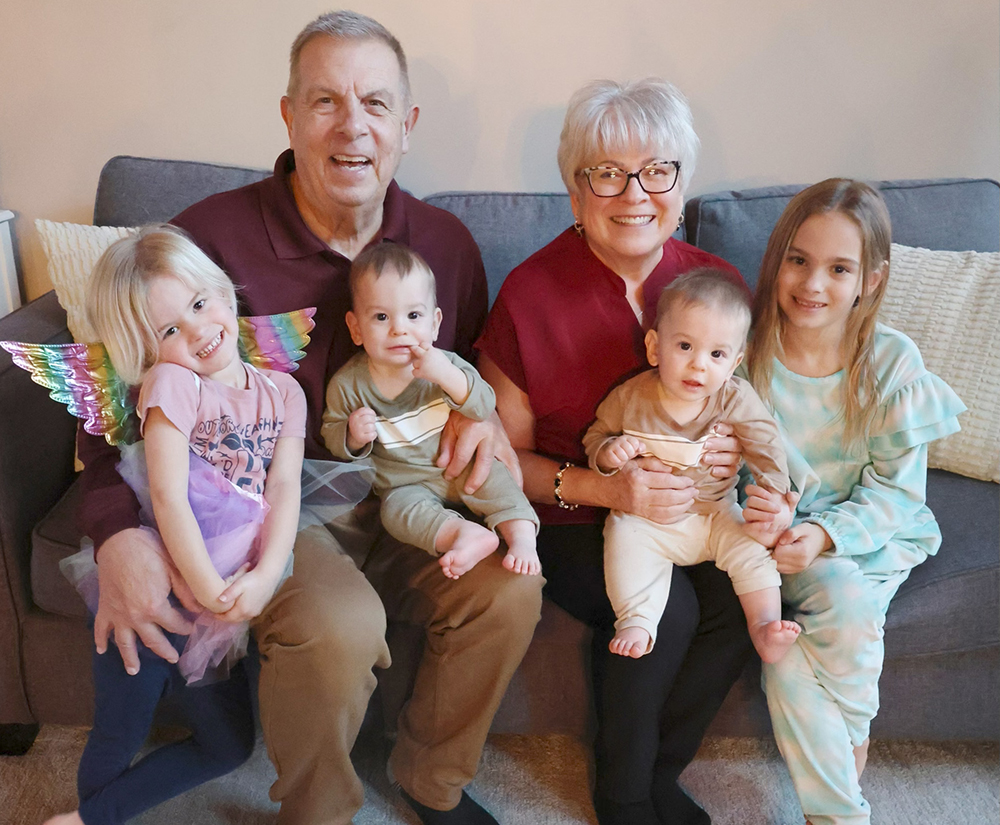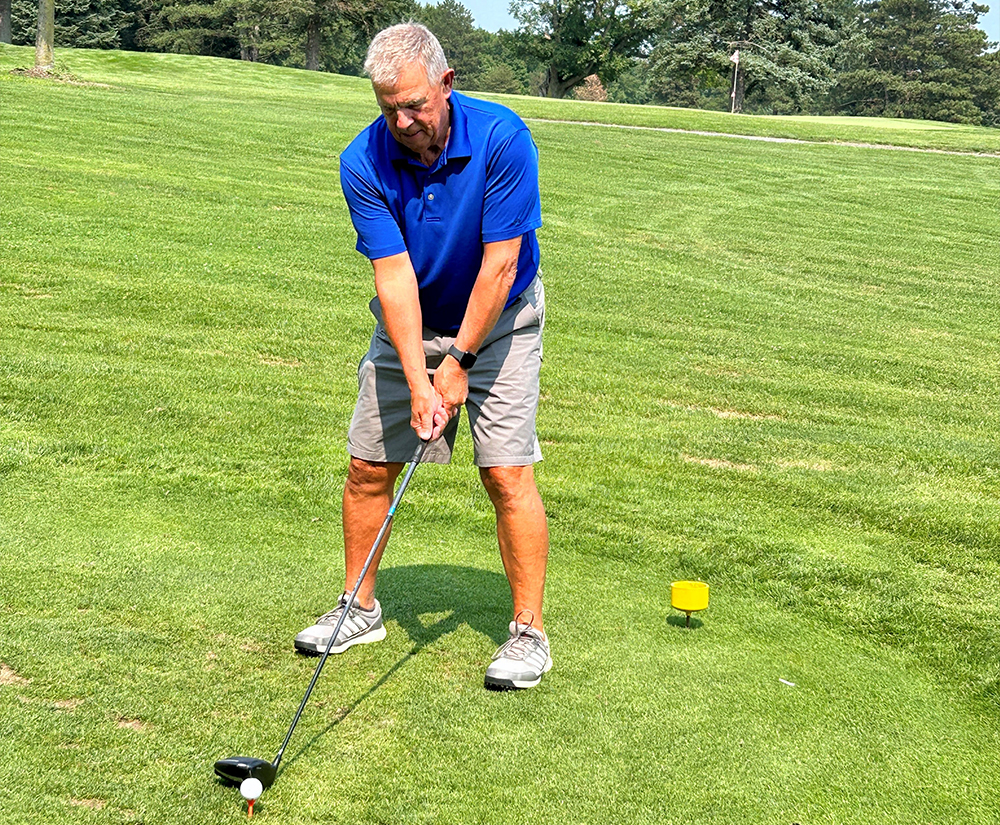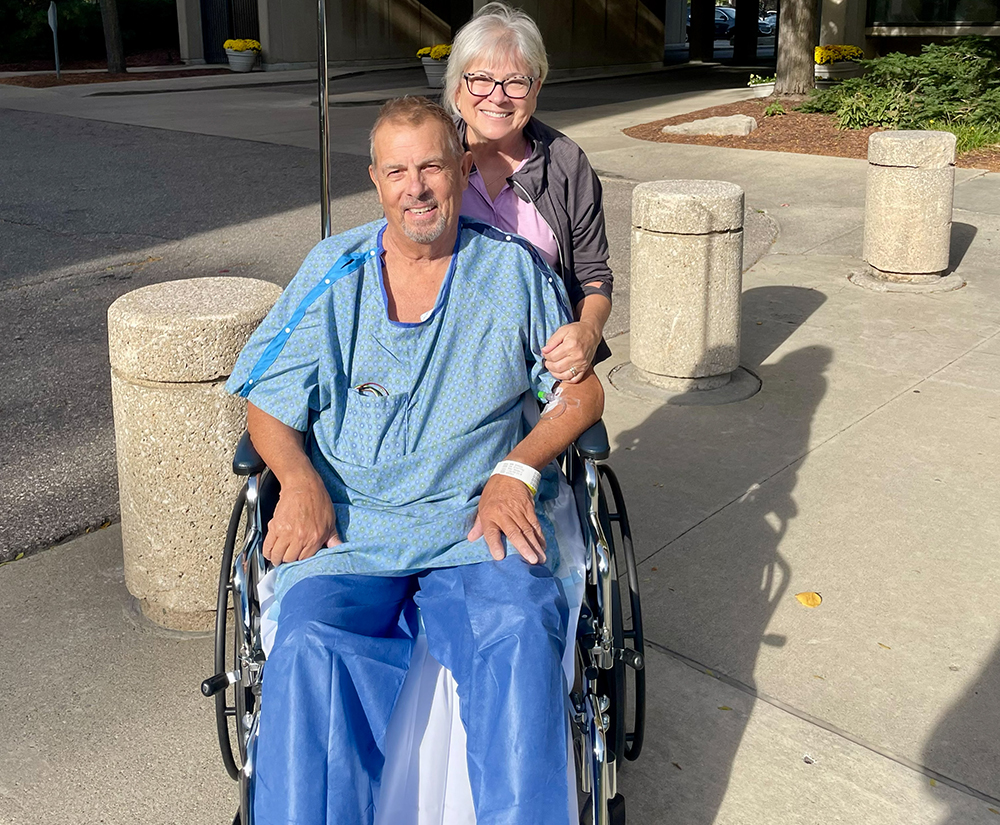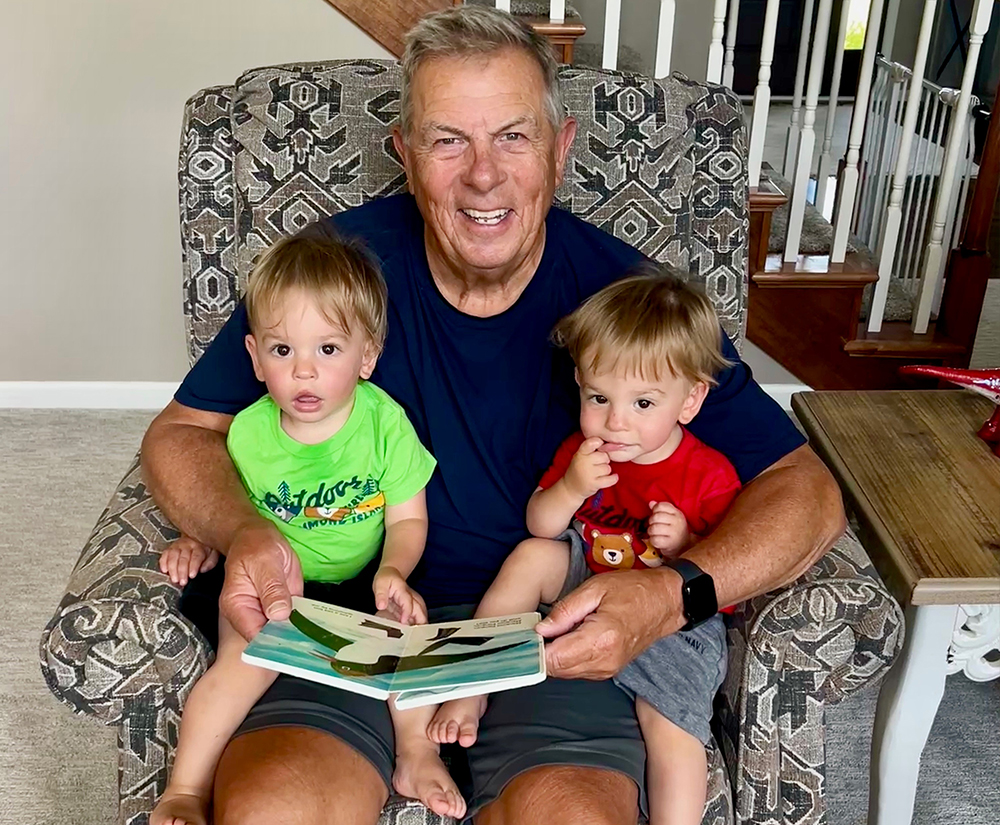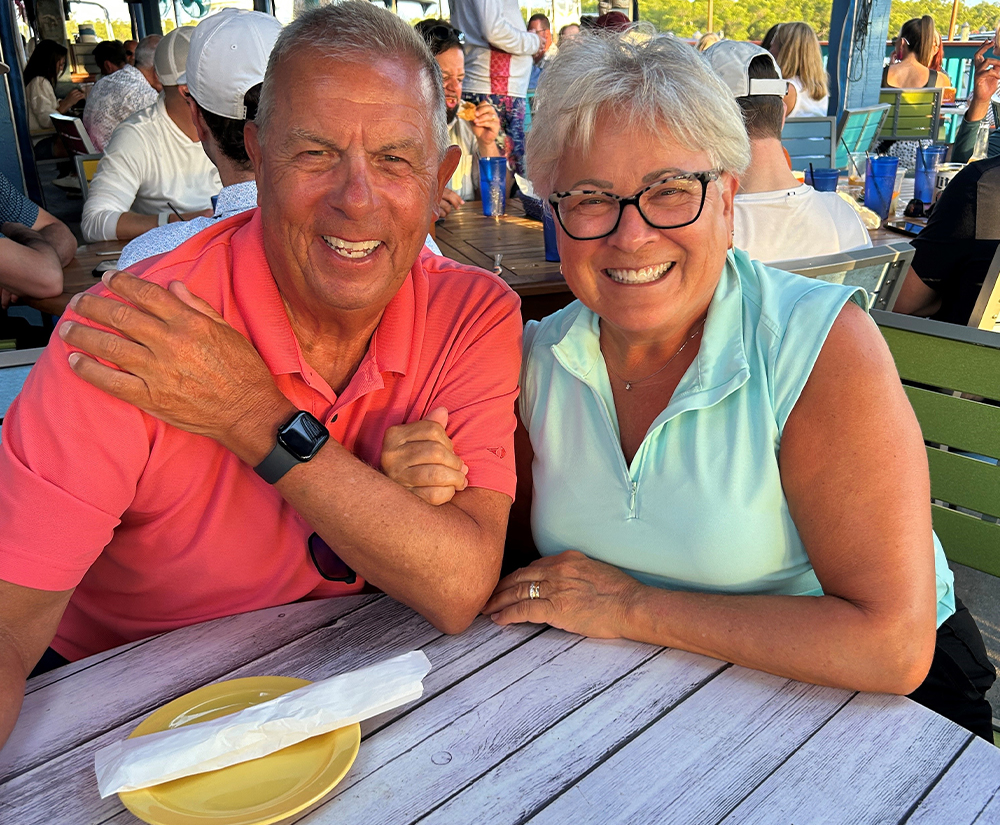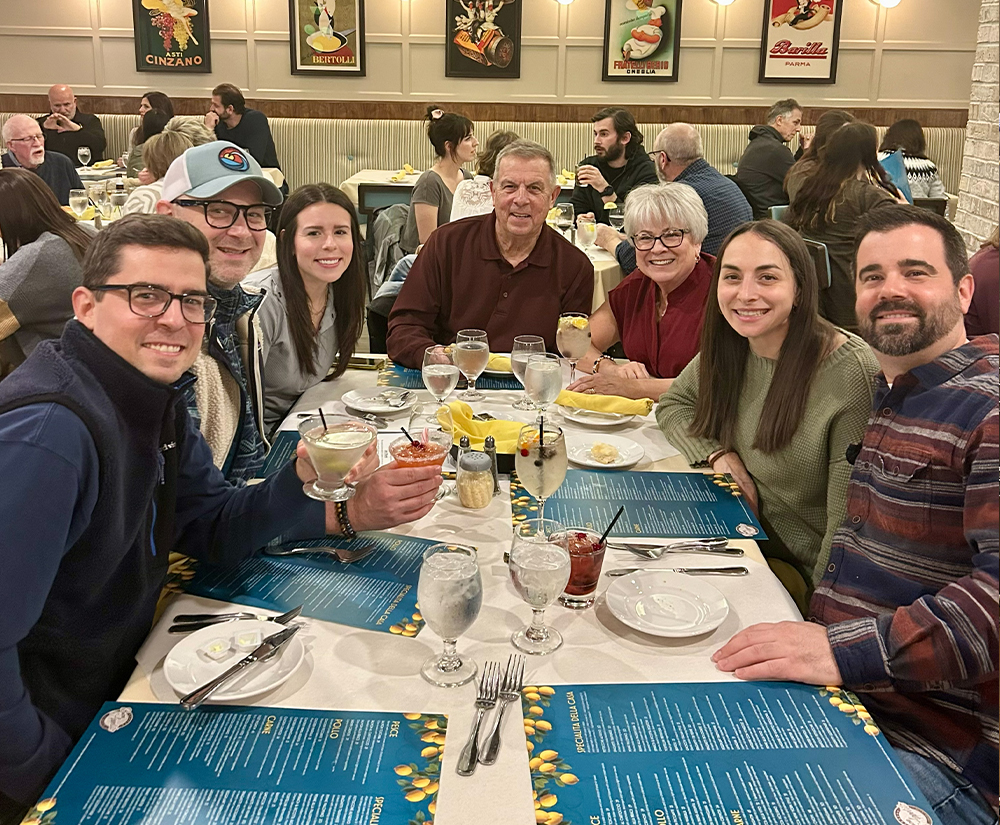Defying the Odds
 September 26th, 2024, began as a normal day for 65-year-old Sheldon Miller. As a resident of Dryden, Michigan, he was enjoying the day working in his yard. His wife, Jeanie, was on a trip to Colorado and he was home alone.
September 26th, 2024, began as a normal day for 65-year-old Sheldon Miller. As a resident of Dryden, Michigan, he was enjoying the day working in his yard. His wife, Jeanie, was on a trip to Colorado and he was home alone.
He lived a healthy lifestyle and did not have a history of heart issues.
While working on his back property, suddenly, he did not feel well. He knew he was having a heart attack and called 911. “I was able to call 911 and drove up on my 4-wheeler to the pole barn,” remembered Sheldon, “since we live off the beaten path, it took roughly 20 minutes for an ambulance to arrive. By the time they got here, I was unconscious and laying on the ground. They noticed one minute I was breathing and verbal and the next minute I wasn’t breathing or conscious.”
They rushed Sheldon to a nearby hospital in Flint. In the rush of getting him the help he needed, Sheldon did not have his wallet or any form of identification on him.
Checking in
Sheldon’s wife, Jeanie, recalled, “I had been checking in that day and never heard back from him. By the end of the day, I still couldn’t get ahold of him. I remembered that I could find Sheldon’s location on my phone, so I looked to see where he was. He showed he was at the hospital in Flint. I called the hospital to see if he was there, and they let me know that he was in critical care.”
Jeanie immediately called her son and daughter-in-law who live local to let them know what happened and their other two children flew in from other states. They raced over to the hospital to be at Sheldon’s side while Jeanie made her way to the airport for the next flight back to Michigan.
By the time Jeanie made it to the hospital, Sheldon was placed on a ventilator and an Impella heart pump – a device used to assist the heart’s pumping function when the heart cannot properly circulate blood on its own.
“They found that I had blockage in my main artery, ‘the widowmaker.’ I had coded and was unresponsive and they did CPR on me for 20 minutes,” said Sheldon.
Preparing for “goodbye”
“When I arrived at the hospital, his doctor let me know how bad his condition was. By this time, all of our children were with us at the hospital and his care team was preparing us to say goodbye to him,” said Jeanie. But his care team had hope.
Sheldon’s left main artery was completely blocked and had to have three stents placed to increase blood circulation. Since the rest of Sheldon’s organs were now failing due to lack of blood flow, the next step was to take out the Impella device and place him on an ECMO (extracorporeal membrane oxygenation) machine. This vital piece of technology took over the function of the heart and lungs so Sheldon’s organs could receive much needed blood flow again. The hospital in Flint did not have this piece of technology, so he was transferred to Henry Ford Hospital in Detroit.
Arrival to Henry Ford
“We made it to Henry Ford in Detroit around 4am on Saturday, September 28th. Immediately they took Sheldon to the catheterization lab to check his stents and added two more stents, totaling five. They also took out the Impella device and put the ECMO device and then eventually a pacemaker. After that, it was just survival mode. We knew he was in good hands, and we just had to wait for him to come back to us,” said Jeanie.
Sheldon’s intensive care unit cardiologist, Sarah Gorgis, M.D. said, “Sheldon had a massive STEMI heart attack, and his main coronary artery was completely blocked. This was further complicated by a cardiac arrest, and his organs and brain were no longer receiving blood flow. Installing the ECMO machine was crucial for Sheldon because it takes over the function of the heart by taking blood from the body, oxygenating it, and then returning it back to the organs. Sheldon also developed kidney failure and couldn’t clear toxins from his body, so we had to start him on dialysis. Our team really had to optimize the use of machines and medications to keep him stable until his organs could all begin working on their own again.”
Surrounded by hope
Sheldon’s heart began beating on its own later that day on September 28th. He then spent 10 days in the intensive care unit.
“With every person that we came across at Henry Ford, there wasn’t one that didn’t think positively or give us hope. From my doctors Sarah Gorgis, M.D., Vikas Aggarwal, M.D., and Pedro Villablanca Spinetto, M.D., to every nurse, physical therapist, especially Courtney Witczak, respiratory therapist, and the nutrition and transport teams. Every single person treated us like family and if they found something that wasn’t working, as a team they always found a solution,” remarked Sheldon.
The next few weeks were crucial as Sheldon healed and his organs returned to normal function. At the end of October, he was transferred to Henry Ford Macomb Hospital for inpatient rehabilitation. “I went from not being able to take two steps to walking with a four-wheel walker in the matter of a week,” remembered Sheldon.
Early intervention is key
“In Sheldon’s case, early intervention was key in helping him survive such a massive event to his heart. Sometimes, intervention doesn’t come as fast, the heart muscle begins dying, and medication won’t help in this case. But for Sheldon, he got support quickly and we were able to have a really positive outcome,” said Dr. Gorgis, “I also was really encouraged to see so many family members and friends supporting him during this time. That really gave Sheldon a lot of hope as he went through this – he was never alone.”
Sheldon was discharged from care on November 7th, 2024. Once he returned home, he went from walking with a walker, then with a cane, and then unassisted. He began driving again and adjusted his lifestyle to include more exercise and his diet to include less sodium.
“After all this happened, we really felt like we wanted some mental rehab, too, so we went to Florida for two months to get some rest and warmth,” said Jeanie, “We know Sheldon’s story could’ve looked a lot different. The fact that he survived this at all is a miracle. He doesn’t have any brain damage and he isn’t paralyzed. He just has some numbness in his leg and foot that they’re working on,” said Jeanie.
Sheldon reflected, “Now that I’ve been through this, I get pretty emotional talking about it to people. I don’t know why I’m here, but I am here for a reason. All the right people were at the right place at the right time. God has a plan for me.”
As a husband, father to three, and “Papa” to four grandchildren, Sheldon is back to living an active life with family, friends, golfing, and spending time outdoors – Sheldon’s idea of a perfect retirement.
.svg?iar=0&hash=F6049510E33E4E6D8196C26CCC0A64A4)

/hfh-logo-main--white.svg?iar=0&hash=ED491CBFADFB7670FAE94559C98D7798)
